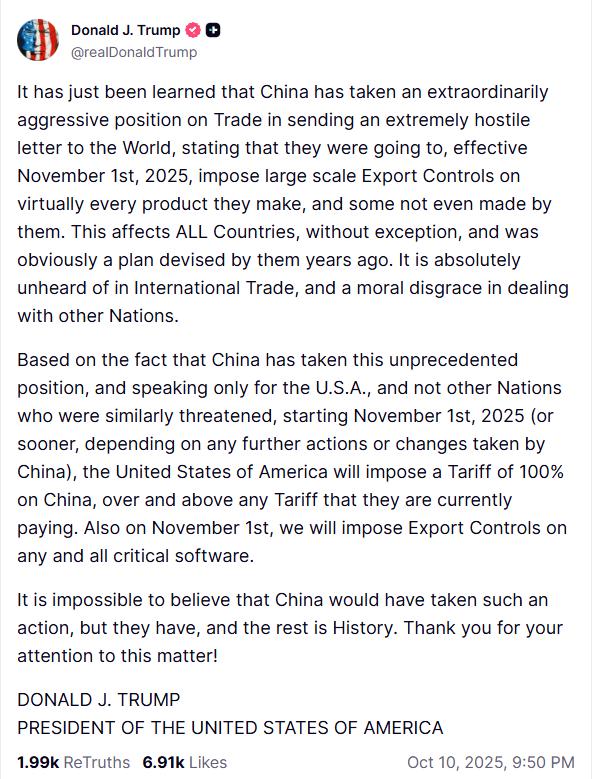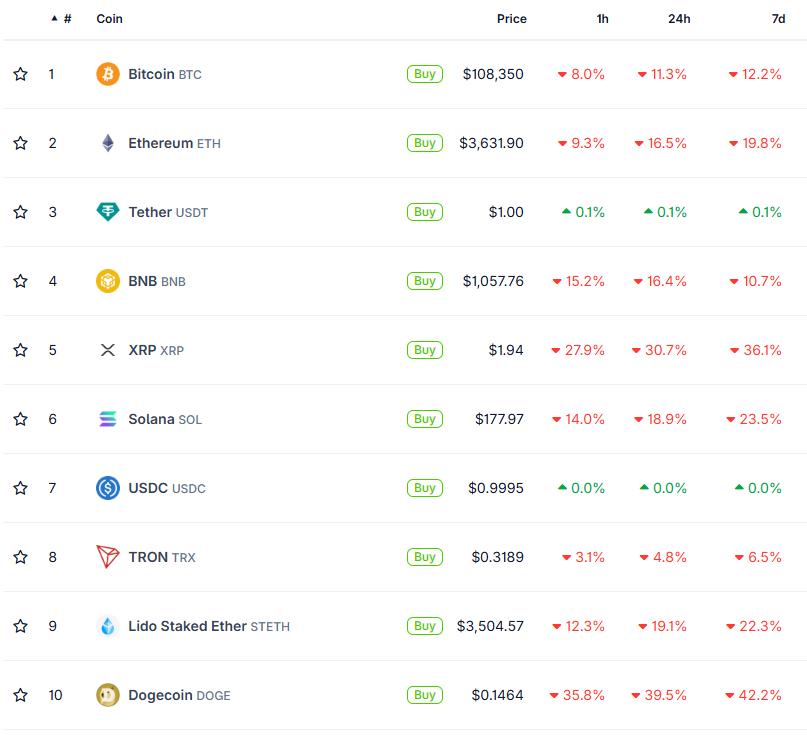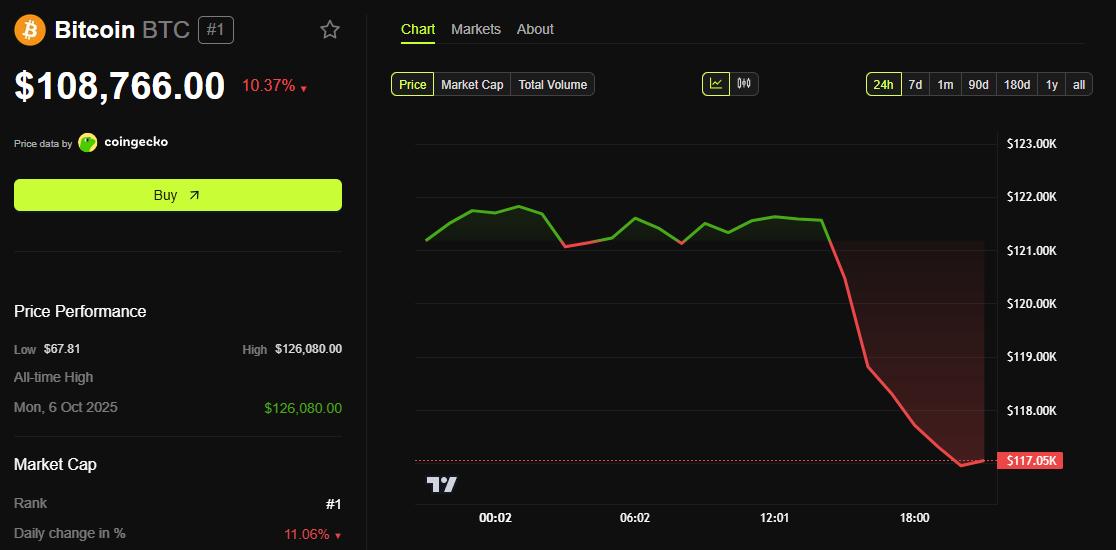Global cryptocurrency markets plunged again late Friday after US President Donald Trump announced new tariffs and export controls on China, pushing tensions to their highest level since 2019.
In a statement posted online, Trump said the US would impose 100% tariffs on all imports from China starting November 1, 2024, citing what he called Beijing’s “extremely aggressive” move to impose broad export controls on “virtually everything they produce.”
The US and China are entering the biggest trade war since 2019.
The announcement caused immediate chaos in the markets. Within hours, the total cryptocurrency market Capital fell from about $4.25 trillion to $4.05 trillion, wiping out nearly $200 billion in value, according to CoinGecko.
Bitcoin fell 10% to $107,000 from $122,000. Ethereum, XRP and BNB fell more than 15%.
 Donald Trump on China tariffs. Source: Truth Social
Donald Trump on China tariffs. Source: Truth SocialThis second wave of losses came just hours after Trump canceled a planned meeting with Chinese President Xi Jinping and threatened a “massive” tariff increase.
That initial statement triggered the first major sell-off, wiping out about $125 billion in cryptocurrency value and more than $800 million in leveraged positions.
 Cryptocurrency market crashes after Trump imposes 100% tariffs on China. Source: CoinGecko
Cryptocurrency market crashes after Trump imposes 100% tariffs on China. Source: CoinGeckoThis latest statement, however, signals a shift from rhetoric to policy, doubling tariffs to unprecedented levels and expanding the dispute to include control of software and technology.
The move effectively confirmed a full-blown trade confrontation, triggering a broad “risk-off” retreat across stocks, commodities and digital assets.
Market observers warn that the combined impact of tariffs and export restrictions could strain global tech supply chain — particularly in semiconductors, AI and blockchain infrastructure — adding to uncertainty in sectors supporting digital assets.
 Bitcoin drops more than 10% after Trump's tariffs on China. Source: BeInCrypto
Bitcoin drops more than 10% after Trump's tariffs on China. Source: BeInCryptoThe timing of this escalation took the market by surprise, increasing liquidation pressure on leveraged positions.
Bitcoin's decline is now testing key psychological levels , while altcoins continue to underperform amid the sharp sell-off.
Traders are now bracing for a volatile weekend, with the market’s next move likely to depend on whether Beijing responds in kind or signals a willingness to reopen negotiations before November 1, 2024.







